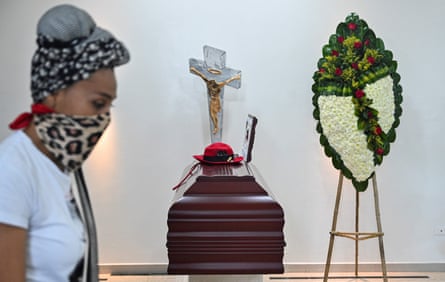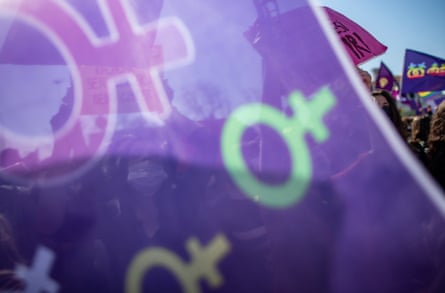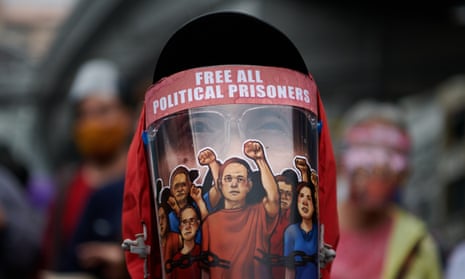Neglected human rights crises around the world have the potential to undermine already precarious global security as governments continue to use Covid as a cover to push authoritarian agendas, Amnesty International has warned.
The organisation said ignoring escalating hotspots for human rights violations and allowing states to perpetrate abuses with impunity could jeopardise efforts to rebuild after the pandemic.
“We’ve seen the development of new legal tools to supposedly ‘combat fake news’ but which in fact repress freedom of expression, attacks against human rights defenders – particularly environmental defenders – the world over, and further repression of [minority] populations who have fallen off the agenda altogether,” said Agnès Callamard, Amnesty’s new secretary general.
“The voices and experiences of all these people must be at the heart of our reboot post Covid-19. If they are not, then the crises will multiply and the [current] system will perpetuate.”
A number of under-reported crises were taking place across the globe that warranted immediate attention, said Callamard.

Amnesty’s global report for 2020–2021, published on Wednesday, found that “fake news” laws in the Gulf, Hungary and Singapore were being used to silence criticism of governments and responses to the pandemic.
Singaporean authorities used the Protection from Online Falsehoods and Manipulation Act, which forces online media platforms to carry corrections or remove content the government considers to be false – with penalties of up to 10 years’ imprisonment or fines of up to S$1m (£540,000), throughout 2020 against government critics and political opponents.
Q&AWhat is the Rights and Freedom series?
Show
A year on from the start of the world’s biggest health crisis, we now face a human rights pandemic. Covid-19 has exposed the inequalities and fragilities of health and political systems and allowed authoritarian regimes to impose drastic curbs on rights and freedoms, using the virus as a pretext for restricting free speech and stifling dissent.
Rights and Freedom is a new Guardian reporting series to investigate and expose human rights abuses at this critical time, and elevate the voices of people on the frontlines, fighting back for themselves and their communities.
Activists in Western Sahara, which has been locked in a decades-long struggle for independence from Morocco, faced a number of interrogations and trumped-up charges for their human rights work, according to the report.

“Western Sahara has been living under oppression for many decades, but [the decision by Donald Trump] to recognise Morocco’s sovereignty has simply escalated the repression,” said Sahrawi activist Mohamed Elbaikam. “Activists are seeing their salaries cut off or frozen; they’re being followed and targeted with trumped-up charges, their family members are threatened, their phones and internet connections are hacked, and some are being tortured and sent to prison without trial.”
The human rights situation in the Philippines, already tenuous, worsened dramatically in 2020. In July 2020, the Philippines passed an anti-terrorism bill and its broad and vague definition of terrorism has since been used to target rights campaigners. The island nation is already the second deadliest country behind Colombia for human rights activists, according to the advocacy group Front Line Defenders. The vast majority of those killed in 2020 were working on environmental, land and indigenous rights, it said.
Amnesty’s report painted a grim picture of the state of human rights around the world, with Callamard saying Covid-19 had “exposed and amplified everything that is wrong with our society”.
Leaders had weaponised the pandemic by using it to ramp up attacks on human rights; vulnerable and elderly people died in their thousands in care homes; gender-based and domestic violence had increased in every region of the world; and global bodies such as the international criminal court and UN had failed to meet the human rights challenges omnipresent in 2020, she said.
A number of governments around the world also used excessive violence to police the pandemic – including the Philippines, Nigeria and Brazil, where an average of 17 people were killed every day by police in the first half of the year, Amnesty’s report claims.
A number of countries had continued crackdowns on freedom of expression in 2020. In nearly a third of all the countries Amnesty monitored, authorities had harassed or intimidated health or other key workers, with many facing reprisals, including arrest and dismissal, for raising concerns about safety or working conditions during the pandemic.

The report, which covered global human rights trends as well as those of 149 individual countries, also highlighted a marked increase in gender-based and domestic violence around the world, with many women and LGBTQ+ people facing barriers to protection and support due to restrictions on freedom of movement and lack of confidential reporting mechanisms.
Callamard said the pandemic had highlighted “the world’s inability to cooperate effectively in times of dire global need”.
“The only way out of this mess is through international cooperation,” she said.
The report found that the world’s most marginalised people, among them women and refugees, bore the brunt of the pandemic. Death, discrimination, unemployment and inequality were global themes: Covid-19 killed at least 1.8 million people worldwide in 2020, while 270 million were left facing acute food insecurity, many of them in squalid camps.
The report also highlighted the number of people who had been inspired to join protests against regressive policies, for example the Black Lives Matter protests in the US, the #EndSARS protests in Nigeria and virtual climate strikes.
